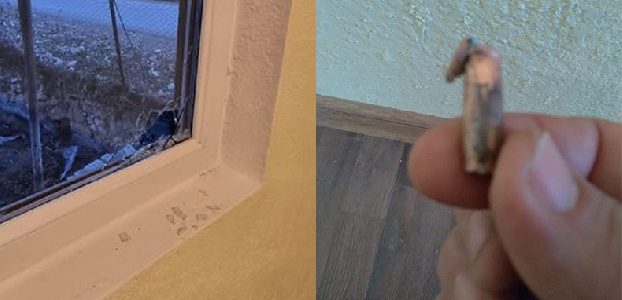Observers predicted that the Azerbaijani-Turkish tandem, which unleashed a 44-day terrorist lawlessness against Nagorno-Karabakh (Artsakh) in the fall of 2020, would try to take advantage of the situation that had developed as a result of the Russian-Ukrainian confrontation and again destabilize the situation in the Karabakh conflict zone. The events of recent days eloquently testify to this – the Baku regime, clearly feeling the support of the many-sided Janus (there is no need to tell the reader about whom), in their favorite vile manner, actually stabs the “ally” in the back, provoking a kind of “second front” for Russia, whose peacekeeping contingent today is practically the only guarantor of a fragile peace not only in the zone of the Azerbaijan-Karabakh conflict, but also in the entire Transcaucasian region.
Nagorno-Karabakh has been deprived of gas for several days now. As is known, on the night of March 8, in the territory near the occupied city of Shushi, the only gas pipeline was damaged, through which natural fuel is supplied to Artsakh from Armenia. The Azerbaijani side does not allow Russian peacekeepers and
specialists of the “Artsakhgas” campaign to approach the territory under their control, cynically preventing the restoration of the pipeline with the open goal of creating new humanitarian problems for the NKR. Taking into account such behavior, various facts and nuances, it can be argued that the accident with the gas pipeline was a sabotage by the Azerbaijani side – the pipe was most likely blown up, that is, a terrorist act took place.
“There is no doubt that both the damage to the gas pipeline and the delay in repair work, as well as the aggressive behavior against the civilian population of Artsakh have recently had geopolitical overtones,” President of the Republic of Artsakh Arayik Harutyunyan noted at an expanded meeting of the Security Council. – In particular, Azerbaijan is trying to take advantage of the situation around Ukraine and the employment of international actors. Official Baku resorts to obvious provocations in order to subject the civilian population to psychological terror and thus evict the Armenians from Artsakh.
For a long time, the Azerbaijani military has also been hindering agricultural work in the fields, firing shots from various types of small arms in the direction of the peasants.
The main target was the village of Khramort, towards which, in addition to firing from small arms, up to three dozen shells of a 60-mm mortar were fired these days. As a result of enemy shelling on March 10, Suren Baghdasaryan, a fifty-year-old resident of Khramort, received a shrapnel wound during yard of his house during agricultural work.
To increase the horror, the enemy defiantly accumulated heavy equipment (tanks) in the direction of the village. For safety reasons, women and children were evacuated to a safe place at night, in the morning they returned to the village.
The Azerbaijani side fired intensely, also using mortars, in the direction of the villages of Nakhijevanik, Parukh of the Askeran region, Khnushinak, Karmir Shuka, Taghavard of the Martuni region.
On March 11, at about 10:20, the Azerbaijani military fired 2 shells from a 120-mm mortar at the territory adjacent to the school in the village of Khnapat, Askeran region. And from positions near the village of Tagavard, threats of physical violence against residents and demands to leave the village were voiced over the loudspeaker.
In a word, Azerbaijan is doing everything to make life unbearable for the indigenous people of Nagorno-Karabakh, to instill in them fear and a sense of the impossibility of living in their own homeland.
“Such provocative actions of the military-political leadership of Azerbaijan indicate both the desire of Baku to keep the people of Artsakh in constant tension and fear, and the undermining of the authority of the Russian peacekeeping mission. Thus, official Baku continues its policy of inciting Armenophobia, undermining the fragile peace and stability in the region, which once again indicates that Azerbaijan is not ready to establish long-term peace in the region,” the statement adopted at the extraordinary meeting noted in particular. in a statement by the National Assembly of the Republic of Artsakh, condemning “Azerbaijan’s aggressive actions, shelling of settlements, psychological and informational pressure on civilians, as well as obstruction of work to restore the gas supply to Karabakh.”
The Karabakh deputies called on the co-chairs of the OSCE Minsk Group and the relevant UN structures to adequately assess the actions of the Azerbaijani side.
In parallel with the described atrocities, Azerbaijani propaganda continues the campaign to discredit the peacekeeping contingent of the Russian Federation, which ensures the security of the population of Artsakh, and in particular its command staff. There is no doubt that the slander against Russian peacekeepers is coordinated and purposeful and organized by order of the Azerbaijani authorities. And the purpose of the rough denigration of the noble mission is very clear – to achieve the withdrawal of the “blue helmets” from Artsakh and try to complete the genocide of the civilian population of Artsakh, started jointly with the Turks and international terrorists.
Of course, Russian peacekeepers are trying to do everything in their power at the moment to prevent a new escalation in the region, but without the use of clear international mechanisms and the full resumption of peace negotiations on a comprehensive and long-term settlement of the Azerbaijani-Karabakh conflict within the framework of recognized mandate of the OSCE Minsk Group co-chairs, the situation will remain unstable and fraught with the most serious threats and consequences.

